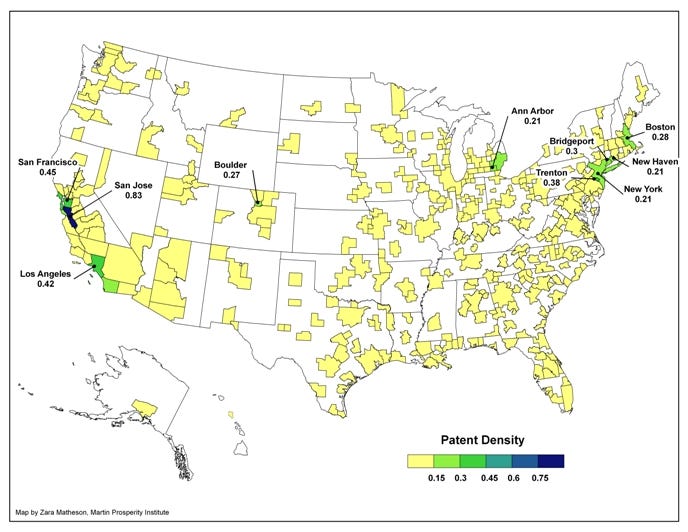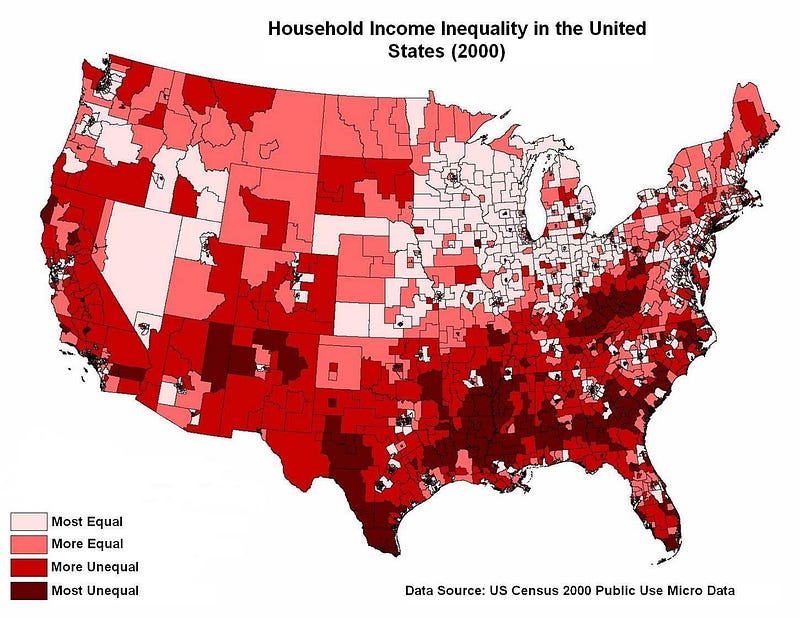Google has just announced a brand new initiative to improve city life, Sidewalk Labs, which will tackle cost of living, transportation, and the environment for urban citizens. While details are scant, it’s worth noting that suburban-based Google is just the latest influential tech giant to join the “cities” bandwagon.
For years, Zappos CEO Tony Hsieh has been managing a roughly $300 million investment in Downtown Lasa Vegas to engineer a scalable model of the perfect city. And when New York Mayor Michael Bloomberg opened up a heavily funded prize competition to spark innovation for major cities, Google’s Eric Schmidt praised the project for funneling money towards “places that have historically been at the forefront of innovation.”
Cities continue to attract the tech elite’s fascination, since historically, population density and innovation have been inextricably intertwined. The more urbanized humans are, the more the knowledge economy grows – a pattern that has held up for roughly 6,000 years.
Today, cities are the lucrative source for the world’s fastest growing startups, such as Uber and Airbnb, which are fueled by overcrowding. It was also true in ancient Europe and Africa, where the first academies popped up around Iraq, Egypt, Greece, and Rome to capture and preserve the discoveries of history’s first scientists.
Below is a brief explanation in 3 maps of why Google and other tech giants are fascinated by cities.
Cities and Innovation

There is an inescapable correlation between density and innovation. The map above from the University of Toronto’s Richard Florida shows that many of America’s most dense cities also file the most patents.
The map is partly based on research that finds that when people are crammed together, they are more likely to swap ideas, start businesses, and share information , fueling a continued spiral of innovation.
“When you pack people together, something special happens,” says Sandy Pentland, a computer scientist at the MIT Media Lab.
Ancient Cities, Excel, and Education

Source: Historyofinformation.com
The ancient seeds of the knowledge economy first grew out of schools of science and their co-location with the invention of writing. The locations of the first major schools cropped up in Egypt, Greece and Italy (Rome), which are still recognizable today as cities. As agrarian man first began to urbanize, more citizens could transition from farm work and concentrate on the arts and sciences.
Schools came out of the the systematic collection of information, first transcribed on cuneiform tablets. The hardened materials didn’t permit elaborate cursive or pictures, but were great for vertical and horizontal tick marks, which helped the first scribes keep track of complex economic data, such as grain yields.

Credit: Max Planck Society
Eventually this became systemized in schools of science, philosophy, and the technological innovations of their students. But the genesis of the knowledge economy was literally developed to keep track of the stuff of large numbers of people.
Cities and Inequality

Google’s Eric Schmidt has argued that growing financial inequality will be the number one issue for modern democracy. Indeed, Sidewalk Labs lists “cost of living” as first topic that the startup will tackle. Cities are hotbeds of inequality, with the extremely wealthy and poor living side-by-side.
It isn’t clear how a small tech startup, even one funded by Google, can solve inequality, especially when the latest research points to expensive housing as the biggest source of financial disparity.
But if cost of living is a prime business area for Sidewalk Labs, it’s harder to think of a better place to sell something than cities.
*The Ferenstein Wire is a syndicated news service. For inquiries, contact the editor here.
For more stories, subscribe to the Ferenstein Wire newsletter here.

COMMENTS
Please let us know if you're having issues with commenting.